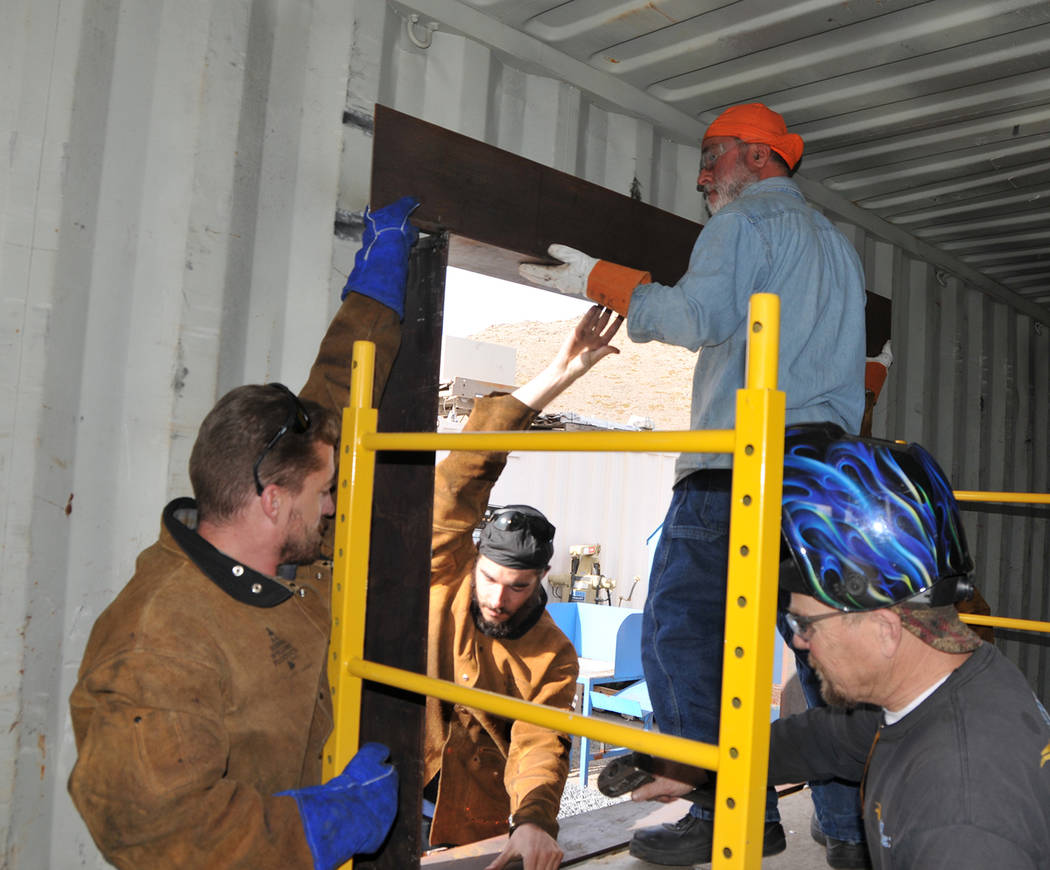Nevada student using shipping containers to build tiny houses
A Nevada college student is working to see that the issues of affordable housing and homelessness are addressed.
Through his involvement with Western Nevada College’s welding program, Masih Madani now has the skills to construct tiny houses from out-of-circulation shipping containers.
The 320-square-foot galvanized steel containers can be stacked side by side, as well as on top of each other, creating a variety of housing possibilities.
“I was shocked by the number of homeless and lack of affordable housing in the area. So, I thought I could help by recycling/repurposing shipping containers into affordable housing,” Madani said. “I lacked welding skills so I took the classes at WNC and made it my project.”
Madani created TerraOne, a 501(c)(3) nonprofit, to make his vision a reality. He is preparing single and double container prototypes through a class project at Andi Butti Welding Technology Center at WNC in Carson City.
“He decided to take the accelerated course because he could gain the necessary skills in a shorter amount of time,” welding instructor Randy Naylor said. “The welding and cutting portion of the project is actually pretty basic and a small part of the finished product. Most students would be able to do what he is doing with the same amount of training.”
Madani’s classmates have been assisting him throughout the project. However, he wants to include more WNC Career and Technical Education students to help complete the prototypes. A 3-D drafting student will create plans for the single and double units, and Madani hopes to include construction students for the insulation and cabinetry work.
“This is very beneficial,” Naylor said. “Interested students can apply what they are learning on a real-world project. Participation is on a volunteer basis.”
“The container structures are far superior in strength, durability and longevity,” said Madani, adding that they are mold, mildew, termite, fire and earthquake resistant, as well as energy efficient.
The steel structure keeps building costs low. He estimates that it will cost about $50 to $60 per square foot to construct a single unit. As a result, a finished single-story unit could be constructed for as little as $25,000 and a double unit for $35,000.
“It is a large project in size but is not really any different than most projects students take on, or that we work on for the college and other organizations,” Naylor said. “The welding and fabrication aspects are fairly straightforward, and everything has been engineered so liability is not an issue.”
After completing his single- and double-unit prototypes this spring, Madani will need to find a home for his larger vision.
Ideally, Madani would like local municipalities to share in his vision and provide financial support to a larger cause. He was scheduled to make a presentation to Reno City Council members, as well as other city officials, at Reno City Hall.
“This project highlights the innovative and entrepreneurial education occurring at WNC,” said Dr. Georgia White, director of career and technical education at the college. “I applaud Mr. Madani for tackling an ambitious class project. Furthermore, this project illustrates benefits of community college programs by providing the space, figuratively and literally, along with encouraging student and faculty collaborations.”
For more information about the college’s welding program, phone Career and Technical Education at 775-445-4272.

















